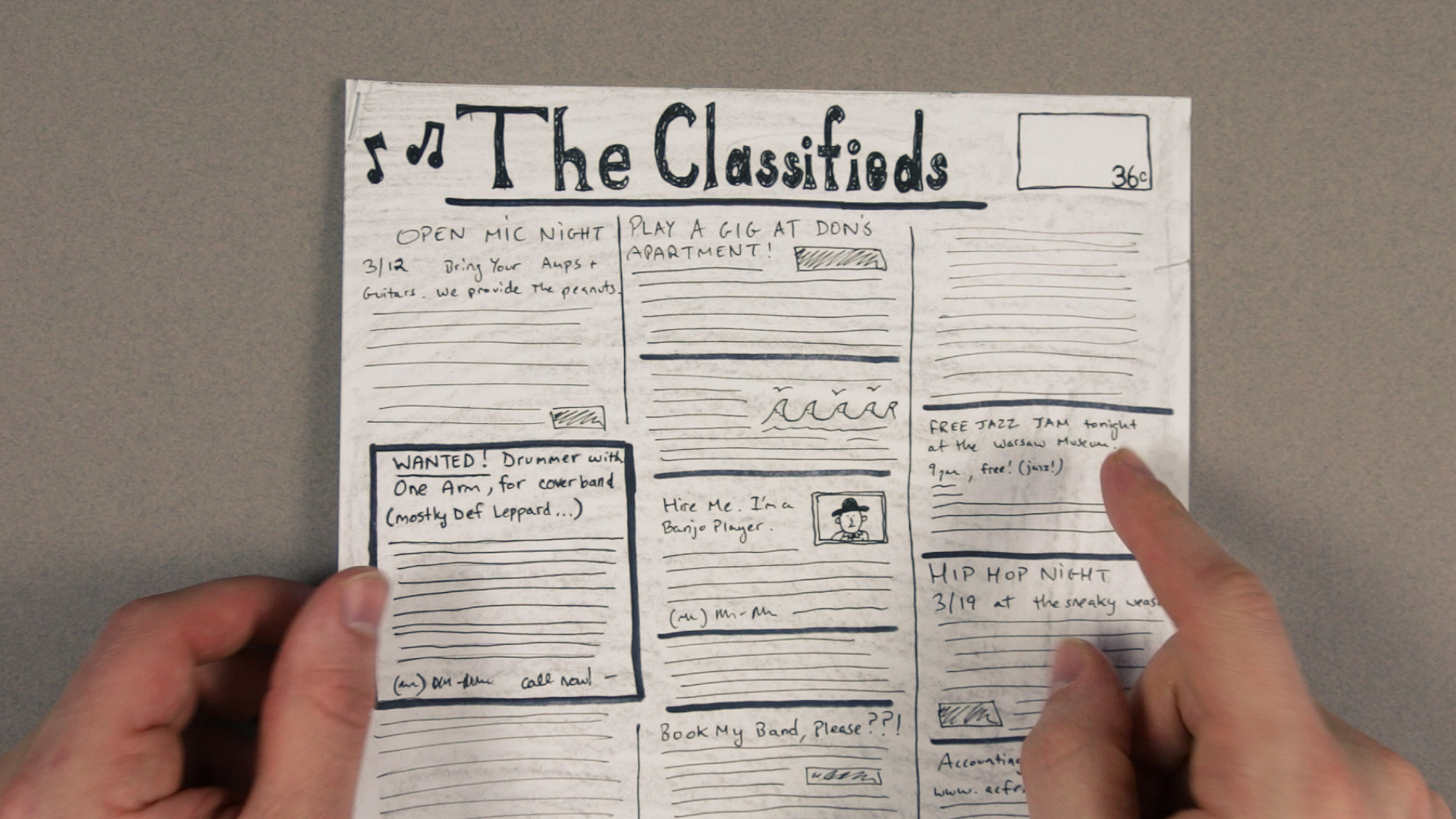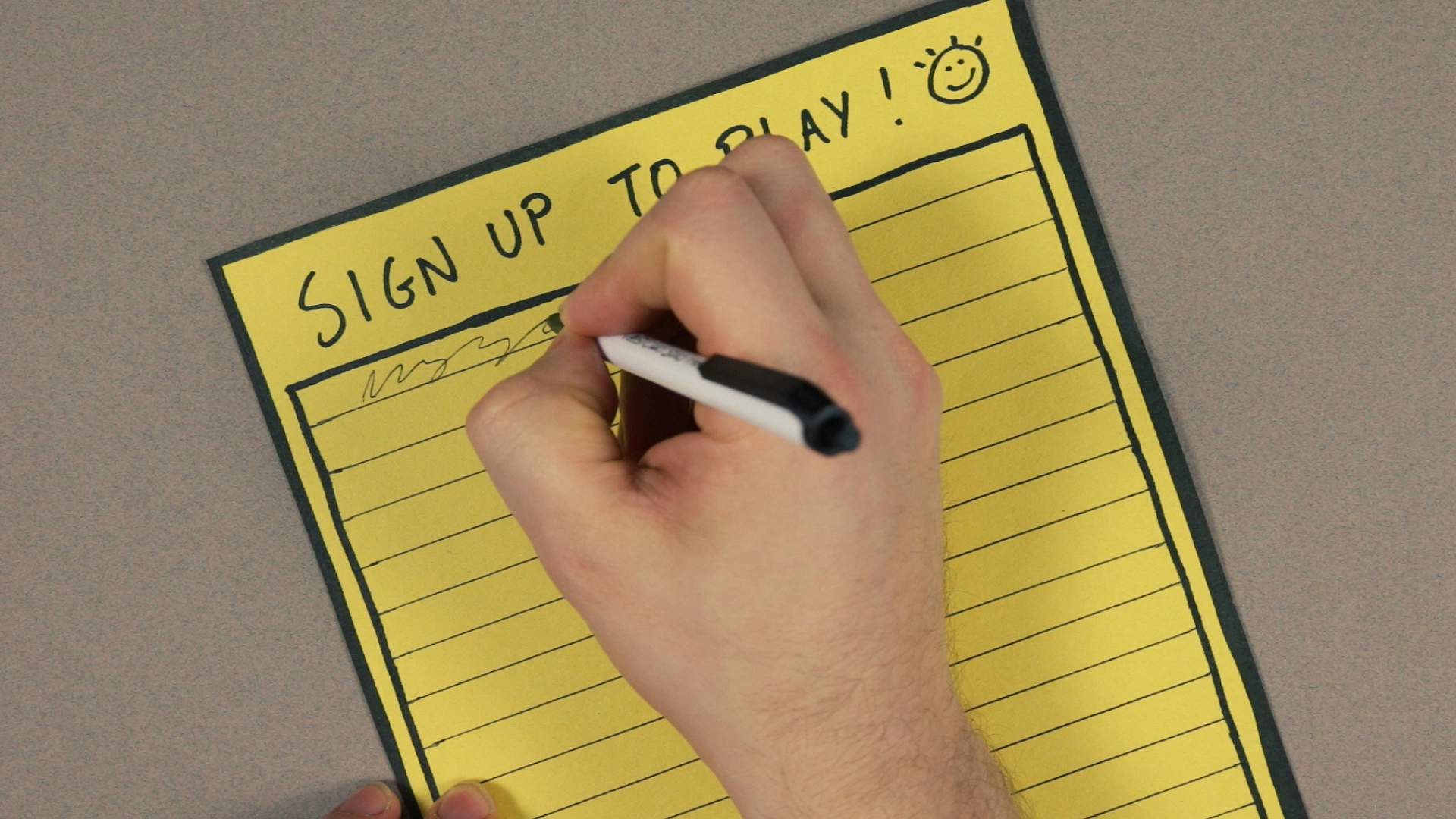
+ Welcome to Soundfly! We help curious musicians meet their goals with creative online courses. Whatever you want to learn, whenever you need to learn it. Subscribe now to start learning on the ’Fly.
In the world of live bands, bass players and drummers have a lot of negotiating power. They’re in demand, and they know it. Nearly every genre of music incorporates percussion of some kind. Even if it’s fake on the recording, there’s usually a human drummer onstage at live shows playing to the click.
And there’s always some instrument controlling the low end of the sonic spectrum, be it a synth bass, bass guitar, or tuba. (Those are pretty popular these days, right?)
Together, drums and bass play the role of conductors. Their combined senses of feel and tempo have a subtle, yet very noticeable, effect on how the band comes together as a whole. They’re an essential part of a band’s sound. That’s why it’s so annoying when they quit.
Or is it?
Though it may delay your progress, losing one of your conductors doesn’t have to mean a full-group hiatus or break up. In fact, it’s an opportunity. If there was one piece of advice I wish I had been given early in my career as “a reluctant bandleader,” it would be this: Be picky about who you invite to play with you.
Wrong people equals wrong sound. I’ve always made music that was a little left of the dial, both difficult to play and difficult to make money playing. This has made finding local, willing, and able personnel somewhat tough. I learned that you can go pretty far with people who are just willing, even if they aren’t able. That said, “We’ll do this for a while, and it’ll get a us little further down the road,” is not an attitude that tends to get you exactly where you want to go.
Looking back, the amount of time and energy wasted dragging the wrong players along was never worth it, and in fact, it probably set us back. It often sounds wrong, it always feels wrong, and everybody knows it — band and audience alike.
I’m embarrassed to listen to old recordings, especially those that feature prior members who stayed on board way past the point of diminishing returns. But, sometimes you have to play around to find the right people. So, if your bassist (or any member) quits the band for greener pastures, or because of a fight, it’s not the end of the world.
Sure it’s a loss, but you’re probably not losing an irreplaceable asset. The exiting of a band member can be liberating creatively and can help recalibrate the energy of an imperfect fit. Now you have the chance to get someone who’s a perfect fit!
Find another band to take over on any gigs you’ve got booked and get to work finding that right person. It’ll take patience, confidence, and not settling. It’s a weed-out process, so get used to saying “no” more than “yes.” Here’s my patented, four-step process.
1. Write an Appealing and Accurate Wanted Ad
Effectively communicating your expectations as early as possible makes a huge difference. Your wanted ad is the first line of defense against letting the wrong person in. A good wanted ad should be relatively succinct, reflective of the tone of your group, and should communicate what you’re looking for in a new recruit. Suggestions like “no drugs” or “must love Frank Zappa” are fine as long as they’re accurate.
Don’t name drop or use flimsy language like “award-winning band.” That kind of stuff will only attract fair-weather players who will drop you the second the next opportunity to forward their individual career presents itself.

I like to make two ads: A short one for Craigslist and other ad sites and a more detailed one for my web site. Ready to get started? Here’s what to do:
- Write down what you do and don’t want in a new member. What’s the time commitment? Will you be on the road a lot? What skills and gear do they need? Do they need to live close? Any essential lifestyle preferences (i.e., “must enjoy being outfitted in head-to-toe leather”)?
- List influences that you actually sound like. If your favorite band is Mastodon, but you sound like Iron & Wine, don’t include Mastodon.
- Select two songs for candidates to learn. Upload these songs online somewhere so candidates can listen any time. Pick tunes that aren’t too difficult but will test the specific skills required of that position. Create handy reference materials (charts, lyric sheets, etc.). The longer version of your ad, which you might want to put up on your website, should contain all of this.
- Now, write a shorter ad that communicates only the essentials. Include which instrument you’re looking for, your influences, how active you are per week or month, and your contact info. Seriously, it can be that short! It might read something like: “Ensemble seeks electric cellist for artsy experimentation. Must be good with effects, willing to practice twice a week, and play shows around the state. We like Glenn Branca, Rasputina, Sleeptytime Gorilla Museum. Contact (555) 555-5555 or [email protected].” You may link to the longer ad at the end of the shorter ad.
- Post the short ad on Craigslist or wherever “musician wanted” ads are read in your area.
- Let everyone know you’re looking. Share with friends, family, colleagues, and everyone you know.
2. Pick Candidates
I tend to give anyone who responded to the ad an audition, but now is your time to consider all options. Fortunately, you can usually tell a lot from a first response. If this is done through email, you don’t even have to respond if it’s that bad.
Crazy sometimes takes a while to reveal itself. I once had a bass player candidate whose first response sounded enthusiastic and fun, but after a few exchanges, it started to feel like an abusive relationship. Sheesh, bullet dodged.
Barring all that, find a date for people to come over and play with you.

Structure auditions to last no more than 30 minutes. This is so key. When I was much younger, my friend and I were auditioning drummers, and we didn’t get a lot of responses. One interested drummer suggested we rent a rehearsal room for a couple hours and try some songs there. At that session, David and I both knew within 10 minutes that we couldn’t play with this guy, but we were both too nice to say anything. It was the longest Saturday afternoon of my life.
The last time I held auditions, scheduling forced us to do it Hollywood cattle-call style. We held six auditions over the course of three hours. It was actually great for comparing and contrasting, but a little odd for the poor musicians when one person left the house as the next walked in.
+ Learn production, composition, songwriting, theory, arranging, mixing, and more — whenever you want and wherever you are. Subscribe for unlimited access!
3. Make Your Auditions Effective on All Levels
Ask yourself these questions:
- Could you get along with or tolerate them long term?
- Do they sound good?
- Do you get the impression they really want to be in your band?
- How prepared are they?
If someone cancels, they better have a darn good reason. Otherwise, congratulations; you just weeded someone out who doesn’t take your band seriously enough. At that six-person audition, three candidates never showed up. One of them was actually in the emergency room! I’m glad he let us know. Guess what? He wound up getting the spot!
If you really want to weed people out, pick a third song designed to test their skills on the fly. Don’t share it with them until the night of the audition. If you’re a chart-reading band, pick a song for them to sight read. But go easy on them — sight reading is tough. If you’re a jamming band, make sure it’s a tune that tests their improvisation and adaptation skills.

You’ll probably know pretty quickly if someone isn’t a candidate you want to pursue. Respectfully inform that person as soon as possible that they didn’t make the cut, but give it a day or two first. Unless they’re a jerk. Thank them for their time and effort.
Remember — second auditions can be the fun ones! If you’re on the fence, you can use a second audition to test more than their talent. See if they’ll fit the culture of your band, or try to successfully write a bare-bones tune in under an hour.
4. Give Them a Trial Run
Once you’ve decided on The One, don’t just give them the keys to the house. Date a little before you get married. Set up a trial period before the candidate is really in. Run a handful of practices, book a low-key local gig, and get feedback from other bandmates.
Then, discuss the new member’s status with the full group at the end of the trial period. Make it a long period, because the shiny newness of this person will wear off for you and them over time. You want this to be long, fruitful friendship, but if you’re starting to see signs that that’s not the case, you can prevent it from becoming a waste of everyone’s time.
This process is not fool-proof. It’s not even genius-proof. I had 12 years or so of doing things the wrong way before I realized some of the mistakes I was making.
Be patient. Don’t worry if you get few or no responses at first. Remember, you’re trying to weed out wrong people, and this process is hopefully doing that. If no one ever replies, review your ad to make sure there’s no language that might turn potential candidates off, and tweak some things.
Supply and demand and timing are both huge factors. Maybe the right person just isn’t looking right now. Consider people in other places. Heck, you could even move the band. Metallica moved from Los Angeles to San Francisco just get Cliff Burton. That turned out to be a good decision!
I want to end by saying that it’s hard to get the right person if you’re not in touch with what your music really sounds like to an audience. We’re all legends in our own minds, but outside your skull, there’s a cold, hard reality that everyone else experiences.
When my band was much newer on the circuit, our fans kept telling us that we sounded like ’70s prog bands like Yes, Rush, and Oingo Boingo. I’d hardly ever listened to those bands, and it bugged me that we weren’t attracting fans of Don Caballero and the Jesus Lizard. It took years for me to realize that I was the one out of touch with how my music really sounded, not others. When I listen to old recordings from those days, I think, “Boy, we really did sound like more Oingo Boingo!”
And that’s okay. Sometimes it takes a long time to learn what you’re good at, to find your sound. There’s nothing wrong with that, and there’s nothing wrong with saying so when seeking others:
“Band that likes a large variety of music looking for someone to join us on the journey of finding our sound.”
If I were a 24-year-old bass player new in town, I’d answer that ad!
Want to get all of Soundfly’s premium online courses for a low monthly cost?
Subscribe to get unlimited access to all of our course content, an invitation to join our members-only Slack community forum, exclusive perks from partner brands, and massive discounts on personalized mentor sessions for guided learning. Learn what you want, whenever you want, with total freedom.





